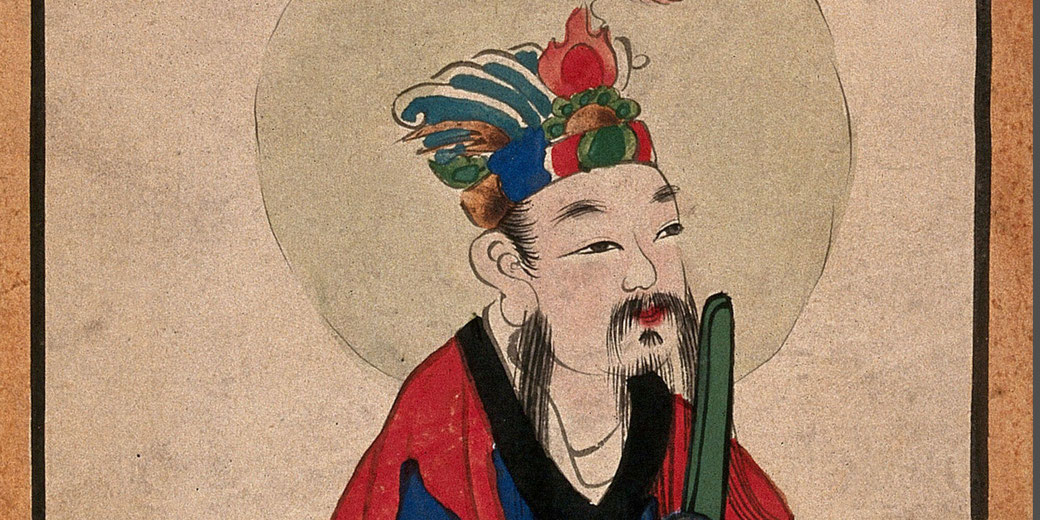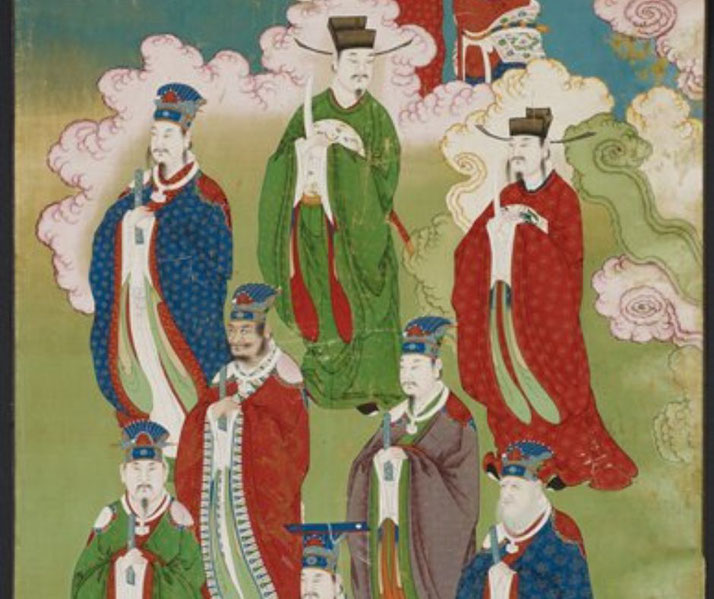God of gods: The Chinese mythology of the Jade Emperor

In ancient Chinese mythology, the Jade Emperor, referred to by the names Yù Huáng or Yù Dì, reigns supreme: the divine ruler over heaven and earth.
Thanks to him, the universe was always in order. Since the heavens were seen as a mirror of the earthly realm, he could be petitioned to fix the problems of the mortal kingdom.
What were the origins of the Jade Emperor?
The earliest reference to the Jade Emperor, although not entirely clear, probably occurred during the Zhou Dynasty (1046-256 BCE), in the form of the 'Heavenly Ruler' or Tian Di.
As much as historians can tell, this spiritual figure oversaw the activities of the earth people on earth in a similar way to the traditional gods.
Over time, as religious and philosophical thoughts evolved, it took on more human traits, eventually appearing into the Jade Emperor we know today.
It was during the Tang (618-907) and Song (960-1279) dynasties that more detailed stories appeared around the Jade Emperor's life and the mythology regarding his rise to the heavenly throne.
This may have been the result of the influence of Taoism and Buddhism spiritual teachings.
According to these tales, the Jade Emperor was originally a mortal king. He was born as the crown prince of a region called the Kingdom of Pure Felicity and Majestic Heavenly Lights and Ornaments.
He was best known for showing exceptional virtue and wisdom during his earthly reign.
However, some tales say that when he was still a prince, he renounced his claim to the throne and chose to live among the people in order to learn about their struggles.
Then, his search for Tao led him to search the world for the ultimate truth. There were a series of tests he underwent over long ages, during which he mastered the art of meditation, until he finally found the Tao, and he finally ascended into the heavens and became a divinity.
As a result, the Jade Emperor's was associated with the supreme examples of the moral virtues.
He was especially viewed as a compassionate being due to his various good deeds, which meant that he was also an ethical guide for human behaviour.
The Jade Emperor's role in Taoism
Taoism evolved over the centuries into a varied set of beliefs and practices. In this belief system, the Jade Emperor was responsible for the management of celestial beings, including recording the deeds of humans, and deciding their fate in the afterlife.
Taoist texts, particularly from the Tang and Song dynasties, depict the Jade Emperor as a pure embodiment of the Tao.
Therefore, in some Taoist rituals, the Jade Emperor is often invoked for blessings and protection.
For example, the 9th day of the first lunar month, known as the Heavenly Birthday of the Jade Emperor, believers offer prayers, incense, and gifts of food in return for blessings of prosperity and peace.
In some myths, he also oversees the Courts of Hell, where various spirits who serve under him to judge souls based on their deeds during their earthly lives.

The Jade Emperor in Folk Religion
So far, we have examined the formal religious traditions like Taoism, but the Jade Emperor features heavily in Chinese folk religion.
These were a blend of customs and traditions that were practiced by the common people, outside the bounds of official religious structures.
As a result, these could appear in a wide range of forms depending on particular regions and communities.
In many of them, the Jade Emperor was seen as a celestial judge, who could be called upon when the legal systems of the kingdom had failed them.
This is clearly drawn from his reputation as the upholder of moral conduct and earthly justice.
As such, there were shrines and temples to the Jade Emperor in many villages across China.
In other incarnations, he operated as a simple protective deity, who could be prayed to for good weather, bountiful harvests in rural communities, or for protection against natural disasters.
He frequently appeared in popular stories and operas, where he played the role of the quintessential wise and just ruler who intervenes in human affairs at the last moment in order to reward those who demonstrated virtue or to punish evil doers.
Popular tales about the Jade Emperor
One of the most popular tales involving the Jade Emperor is the myth of the Chinese Zodiac.
In it, the Jade Emperor invited all the animals in the kingdom for a race and the first twelve to finish would be granted a place in the Zodiac.
In another, a demon king threatened to overrun the earth to destroy humanity, but the Jade Emperor fought back.
Interestingly, he was initially defeated, but later managed to vanquish the demon with the help of other deities.
Over time, the popular worship of the Jade Emperor spread outside of China, and now temples and rituals dedicated to him can be found in Taiwan, Vietnam, Singapore, Malaysia and among Chinese diaspora communities worldwide.
What do you need help with?
Download ready-to-use digital learning resources
Copyright © History Skills 2014-2025.
Contact via email
With the exception of links to external sites, some historical sources and extracts from specific publications, all content on this website is copyrighted by History Skills. This content may not be copied, republished or redistributed without written permission from the website creator. Please use the Contact page to obtain relevant permission.





